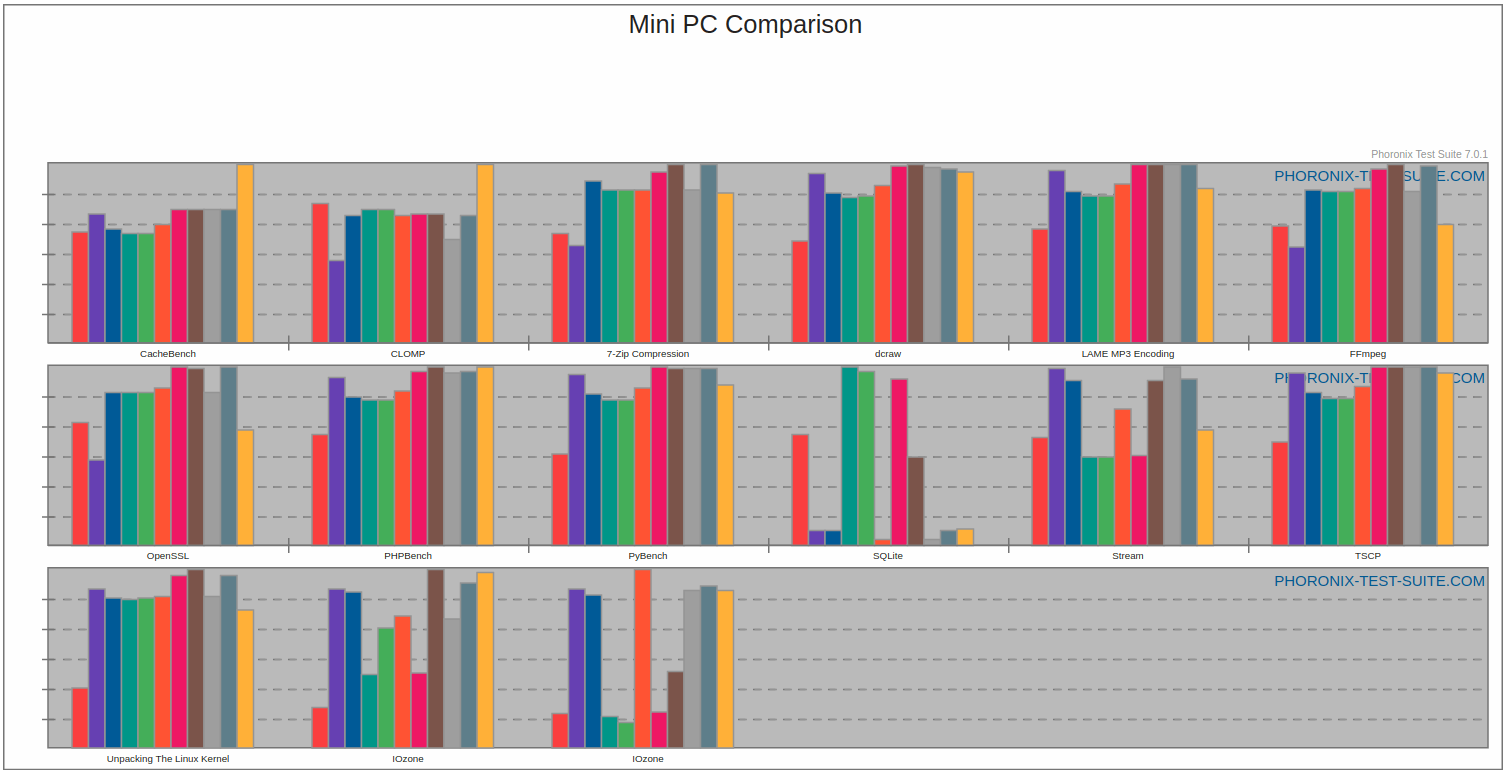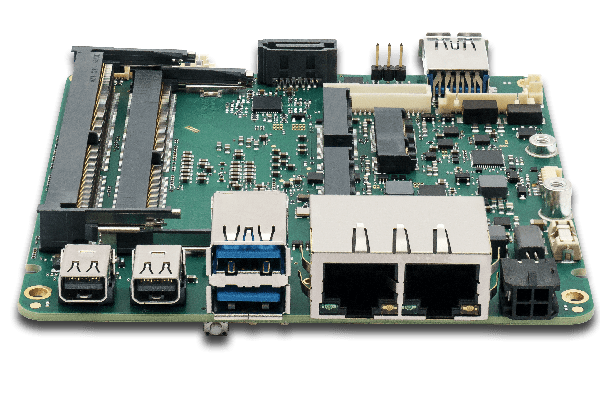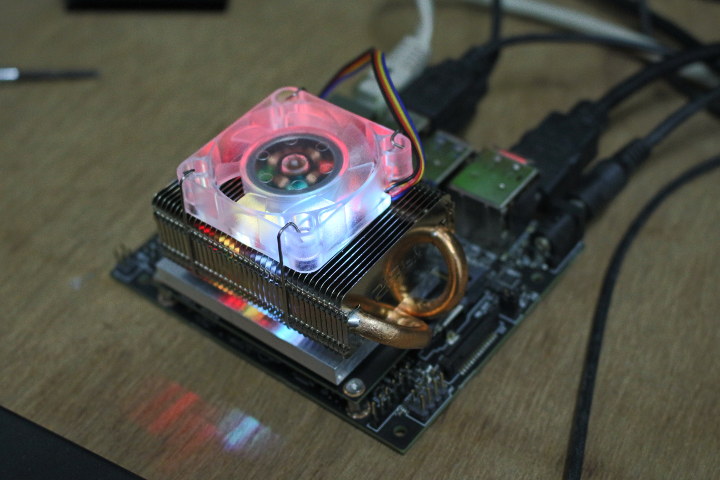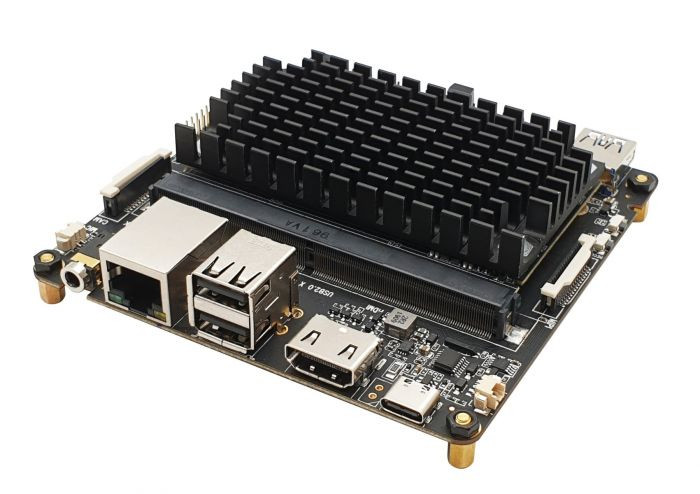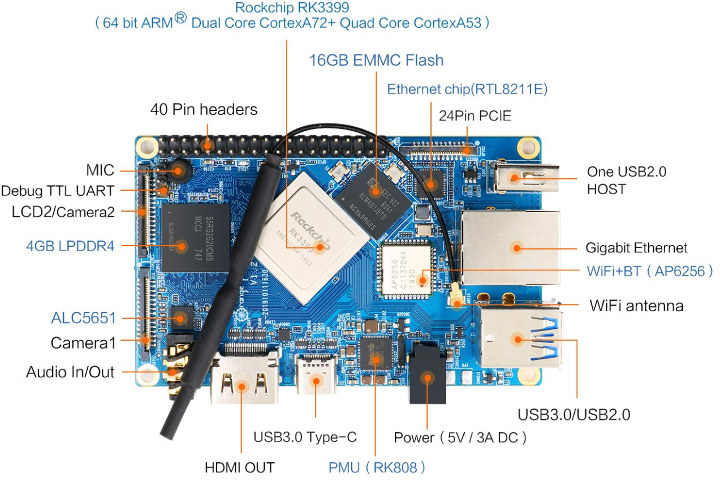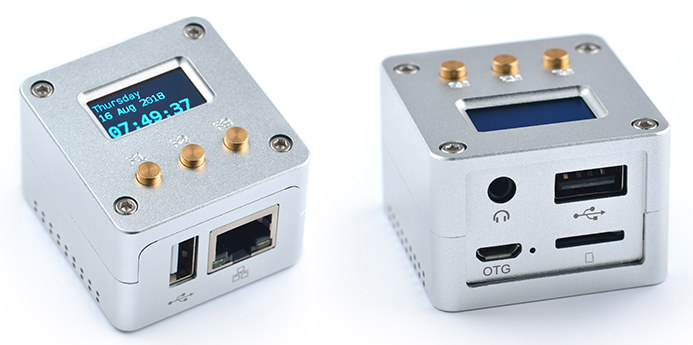When I recently reviewed the Beelink J45 (aka Beelink Gemini J), a mini PC that uses the slightly older Intel Apollo Lake Pentium J4205 processor, whilst Windows 10 Pro ran fine it was unsuitable for Ubuntu because after installation the system became unstable and problems were encountered when running anything that loaded the system. The main issue was that when connected via wired-ethernet performing a command like ‘sudo apt upgrade’ would cause the ethernet to drop after which only a reboot would restore the connection. At the time it, was unclear what the cause was however a solution to the issue was posted by ‘gambetta’ on the Beelink forum. Basically it consists of installing the r8168 module which is the Linux device driver released for RealTek RTL8168B/8111B, RTL8168C/8111C, RTL8168CP/8111CP, RTL8168D/8111D, RTL8168DP/8111DP and RTL8168E/8111E Gigabit Ethernet controllers with PCI-Express interface. To paraphrase the ‘README.Debian’ file, you use ‘r8168-dkms because the in-kernel […]
A Look at Ubuntu on MINIX NEO G41V-4 and J50C-4 Mini PCs
MINIX Technology Limited recently released two new Gemini Lake mini PCs running Windows 10 Pro namely the MINIX NEO J50C-4 actively-cooled mini PC with an Intel Pentium Silver J5005 processor and the MINIX NEO G41V-4 fanless mini PC powered by an Intel Celeron N4100 processor. Whilst each mini PC comes with 64GB of eMMC with pre-installed Windows 10 Pro together with 4GB of RAM they also support the addition of an optional 2280 M.2 drive and the MINIX NEO J50C-4 allows optional memory upgrades. Prior to testing their performance under Ubuntu, I established a comparison baseline by updating Windows to version 1903 and then running my standard set of benchmarking tools first with the default configuration of each mini PC and then repeated having installed the official MINIX 2280 M.2 240GB drives for each device together with adding an extra 4GB RAM to the MINIX NEO J50C-4. The results can […]
EEPD Launches AMD Ryzen Embedded NUC Boards & Mini PCs
EEPD SBC Profive follows embedded NUC Standard Electronic Equipment Production and Distribution, also known as EEPD, has just released its latest Embedded SBCs based on the AMD Ryzen Embedded R1000 and V1000 platforms. Respectively they are the SBC Profive NUCR and NUCR both designed for industrial uses. The NUCv has 4 variants with 2 different V1000 series CPUs to choose from, while the NUCR has two R1000 variants. eNUC and Integrated Graphics All variations and types of SBCs and BoxPCs use the embedded NUC standard utilizing the AMD Ryzen embedded platform and series with Radeon Vega Graphics integrated into the system. SBC Profive NUCR specifications AMD Series R1000 Processors – R1606G / R1505G Integrated GPU – AMD Radeon Vega 3 Graphics Up to 32 GB dual-channel DDR4 memory 2x Gigabit Ethernet ports (Intel I210 with IEEE1588) 1x MicroSD card slot 3x M.2 Type B, Type E, Type M sockets M.2 SATA […]
Testing NVIDIA Jetson Nano Developer Kit with and without Fan
A few weeks ago I received NVIDIA Jetson Nano for review together with 52Pi ICE Tower cooling fan which Seeed Studio included in the package, and yesterday I wrote a getting started guide showing how to setup the board, and play with inference samples leveraging the board’s AI capabilities. I’ll now test the board with the stock heatsink in both 5W and 10W modes, and see if thermal throttling does occur, and then I’ll fit the tower cooling fan to find out if we can extract more performance that way and how much lower the CPU temperature is. Jetson Nano Stress Tests with Stock Heatsink Let’s install SBC-Bench testing utility,
|
1 2 |
wget https://raw.githubusercontent.com/ThomasKaiser/sbc-bench/master/sbc-bench.sh chmod +x sbc-bench.sh |
check it’s properly installed,
|
1 2 3 4 5 |
sudo ./sbc-bench.sh -m Time CPU load %cpu %sys %usr %nice %io %irq Temp 15:05:06: 922MHz 0.05 5% 1% 2% 0% 0% 0% 35.0°C 15:05:11: 922MHz 0.13 3% 1% 1% 0% 0% 0% 35.0°C 15:05:16: 922MHz 0.12 3% 1% 1% 0% 0% 0% 34.8°C |
and run it in 5W mode:
|
1 2 3 4 5 6 7 8 9 10 11 12 13 14 15 16 17 18 19 20 21 22 23 |
sudo nvpmodel -m 1 sudo ./sbc-bench sbc-bench v0.6.9 Memory performance: memcpy: 3685.3 MB/s memset: 8555.4 MB/s 7-zip total scores (3 consecutive runs): 2877,2885,2854 OpenSSL results: type 16 bytes 64 bytes 256 bytes 1024 bytes 8192 bytes 16384 bytes aes-128-cbc 284837.64k 525113.11k 639412.05k 706251.09k 728449.02k 729841.66k aes-128-cbc 284316.13k 525028.93k 634287.70k 704675.84k 728088.58k 728973.31k aes-192-cbc 262002.90k 458230.17k 544725.93k 588999.68k 604075.35k 604607.83k aes-192-cbc 261583.66k 458583.96k 538986.92k 588138.84k 602303.15k 604067.16k aes-256-cbc 247370.60k 405101.35k 466444.29k 501432.32k 512816.47k 513370.79k aes-256-cbc 247650.51k 405270.40k 469783.72k 502266.54k 513187.84k 512977.58k Full results uploaded to http://ix.io/23rg. Please check the log for anomalies (e.g. swapping or throttling happenend) and otherwise share this URL. |
The temperature never went over 44.5°C, and no throttling occurred. tegrastats during 7-zip multi-core test:
|
1 2 3 4 |
CPU [100%@1428,100%@1428,off,off] EMC_FREQ 3%@1600 GR3D_FREQ 0%@76 APE 25 PLL@41.5C CPU@43.5C PMIC@100C GPU@43.5C AO@52.5C thermal@43.5C POM_5V_IN 3348/2567 POM_5V_GPU 0/0 POM_5V_CPU 1549/912 RAM 1211/3956MB (lfb 515x4MB) SWAP 0/1978MB (cached 0MB) IRAM 0/252kB(lfb 252kB) CPU [100%@1428,100%@1428,off,off] EMC_FREQ 3%@1600 GR3D_FREQ 0%@76 APE 25 PLL@41.5C CPU@44C PMIC@100C GPU@43.5C AO@52C thermal@43.5C POM_5V_IN 3348/2568 POM_5V_GPU 0/0 POM_5V_CPU 1549/912 RAM 1239/3956MB (lfb 508x4MB) SWAP 0/1978MB (cached 0MB) IRAM 0/252kB(lfb 252kB) CPU [100%@1428,100%@1428,off,off] EMC_FREQ 3%@1600 GR3D_FREQ 0%@76 APE 25 PLL@41.5C CPU@44C PMIC@100C GPU@43.5C AO@52.5C thermal@43.5C POM_5V_IN 3348/2569 POM_5V_GPU 0/0 POM_5V_CPU 1549/913 RAM 1265/3956MB (lfb 502x4MB) SWAP 0/1978MB (cached 0MB) IRAM 0/252kB(lfb 252kB) CPU [100%@1428,100%@1428,off,off] EMC_FREQ 3%@1600 GR3D_FREQ 0%@76 APE 25 PLL@41.5C CPU@43.5C PMIC@100C GPU@43.5C AO@52.5C thermal@43.5C POM_5V_IN 3348/2571 POM_5V_GPU 0/0 POM_5V_CPU 1510/914 |
Only two Cortex-A57 cores are used even under load, and power […]
AI inference using Images, RTSP Video Stream on NVIDIA Jetson Nano Devkit
Last month I received NVIDIA Jetson Nano developer kit together with 52Pi ICE Tower Cooling Fan, and the main goal was to compare the performance of the board with the stock heatsink or 52Pi heatsink + fan combo. But the stock heatsink does a very good job of cooling the board, and typical CPU stress tests do not make the processor throttle at all. So I had to stress the GPU as well, as it takes some efforts to set it up all, so I’ll report my experience configuring the board, and running AI test programs including running objects detection on an RTSP video stream. Setting up NVIDIA Jetson Nano Board Preparing the board is very much like you’d do with other SBC’s such as the Raspberry Pi, and NVIDIA has a nicely put getting started guide, so I won’t go into too many details here. To summarize: Download the […]
ROCK PI N10 RK3399Pro SBC Sells for $99 and up
Rockchip RK3399Pro processor is based on the popular Rockchip RK3399Pro hexa-core Arm Cortex-A72/A53 processor plus an embedded neural processing unit (NPU) delivering up to 3 TOPS for AI acceleration. So far you had to spend over $200 to get either Toybrick RK3399Pro board or 96Boards RK3399Pro development kit to get started with the processor. Some other companies announced their own RK3399Pro SBC such as Pine64 RockPro64-AI, or Khadas Edge board, but those are not available yet. But there’s now a more affordable Rockchip RK3399Pro SBC courtesy of Radxa’s Rock Pi N10 available on Seeed Studio in three variants: $99 model A with 4GB RAM (3GB for CPU/GPU + 1GB for NPU), 16GB eMMC flash $129 model B with 6GB RAM (4GB for CPU/GPU + 2GB for NPU), 32GB eMMC flash $169 model C with 8GB RAM (4GB for CPU/GPU + 4GB for NPU), 64GB eMMC flash Rock Pi N10 specifications: […]
Orange Pi 4/4B Board with RK3399, 4GB RAM Launched for $50 and Up
Orange Pi 4 is yet another Rockchip RK3399 SBC with 4GB RAM, while Orange Pi 4B adds Gyrfalcon Lightspeeur 2801A AI Accelerator. Both models were announced about 10 days but were not for sale just yet. The company has now launched the board on both Aliexpress and their newly opened Amazon store with three options: Orange Pi 4 with no eMMC flash – $49.90 Orange Pi 4 with 16GB eMMC flash – $59.90 Orange Pi 4B with 16GB eMMC flash, Gyrfalcon NPU – $69.90 Quick reminder of Orange Pi 4/4B specifications: SoC – Rockchip K3399 hexa-core big.LITTLE processor with two Arm Cortex A72 cores, four Cortex A53 cores, and an ARM Mali-T860 MP4 GPU with support for OpenGL ES 1.1 to 3.1 support, OpenVG1.1, OpenCL and DX 11 System Memory – 4 GB LPDDR4 Storage – Optional 16 GB eMMC flash, micro SD card NPU (Orange Pi 4B only) – Gyrfalcon […]
NanoPi NEO2 Black Arm Linux SBC for Headless Applications Launched for $20 and Up
NanoPi NEO2 Black is an Allwinner H5 SBC designed for headless applications that improves on the existing NanoPi NEO2 board by adding an eMMC flash module support, and higher memory capacity (up to 1GB RAM). The board was announced last month, but it’s now available for purchase for $19.99 plus shipping on FriendlyElec website. Here’s a reminder of the specifications: SoC – Allwinner H5 quad-core Cortex A53 processor with an ARM Mali-450MP GPU System Memory – 1GB DDR3 Storage – MicroSD card slot, eMMC flash module connector Connectivity – Gigabit Ethernet (via RTL8211E-VB-CG chip) USB – 1x USB 2.0 host port, 1x micro USB OTG port, 1x USB via headers Expansion headers 10-pin header with I2C, UART, GPIOs, and power signals (5V in/out + GND) 6-pin header with 1x USB, Line Out (stereo), 1x GPIO Debugging – 2-pin unpopulated header for serial console / debugging Misc – Power and system […]



